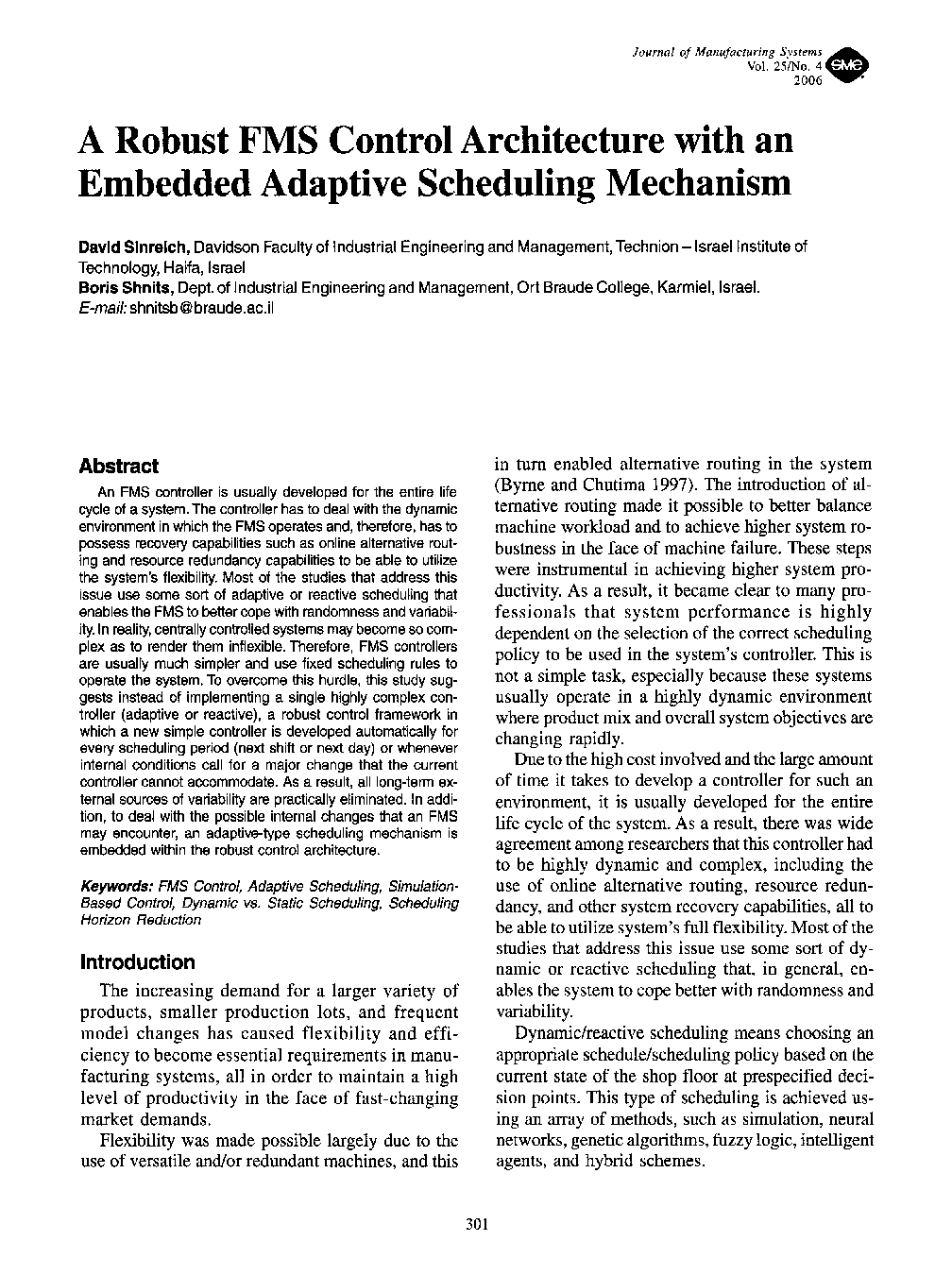| Article ID | Journal | Published Year | Pages | File Type |
|---|---|---|---|---|
| 1697781 | Journal of Manufacturing Systems | 2006 | 12 Pages |
Abstract
An FMS controller is usually developed for the entire life cycle of a system. The controller has to deal with the dynamic environment in which the FMS operates and, therefore, has to possess recovery capabilities such as online alternative routing and resource redundancy capabilities to be able to utilize the system's flexibility. Most of the studies that address this issue use some sort of adaptive or reactive scheduling that enables the FMS to better cope with randomness and variability. In reality, centrally controlled systems may become so complex as to render them inflexible. Therefore, FMS controllers are usually much simpler and use fixed scheduling rules to operate the system. To overcome this hurdle, this study suggests instead of implementing a single highly complex controller (adaptive or reactive), a robust control framework in which a new simple controller is developed automatically for every scheduling period (next shift or next day) or whenever internal conditions call for a major change that the current controller cannot accommodate. As a result, all long-term external sources of variability are practically eliminated. In addition, to deal with the possible internal changes that an FMS may encounter, an adaptive-type scheduling mechanism is embedded within the robust control architecture.
Keywords
Related Topics
Physical Sciences and Engineering
Engineering
Control and Systems Engineering
Authors
David Sinreich, Boris Shnits,
